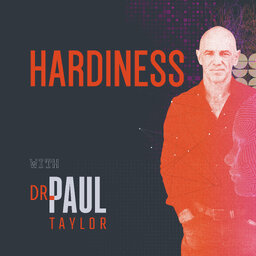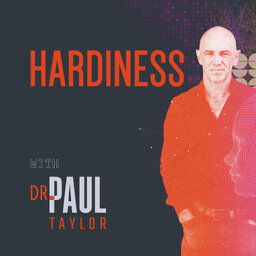Wisdom Wednesdays: The Six Most Important Health Biomarkers to Track
We all know the importance of regular check-ups, but what should you pay the most attention to? Today I discuss what I think are the 6 most important biomarkers to track, as when they go awry, they dramatically increase your risk of Cardiovascular Disease, Type 2 Diabetes, Dementia, some Cancers, Fatty Liver Disease, Chronic kidney Disease and more.
 Hardiness with Dr Paul Taylor
Hardiness with Dr Paul Taylor


